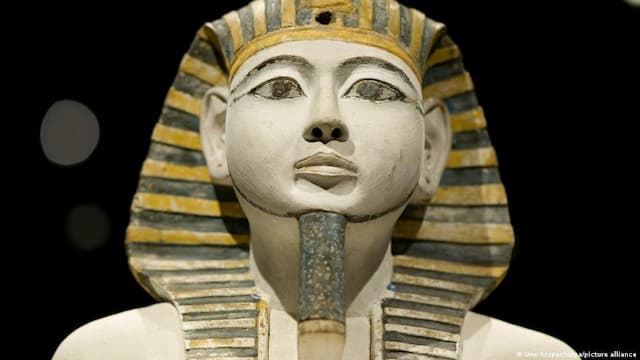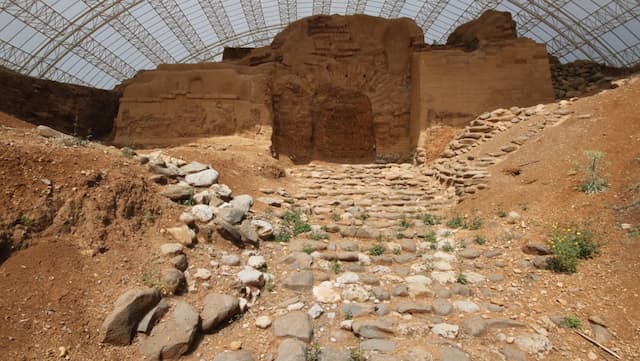What the mocking reveals (Matthew 27:27–31)
Why do the Gospel writers describe the mockery of Jesus if their aim is to promote him?

What makes a king? Is it the coronation event, that special day when people lead you to the palace, dress you in regal robes, place a crown on your head and a sceptre in your hand, and perform the formal speech act of declaring you to be king?
Matthew describes a mock enthronement where Roman soldiers crown a condemned man to parody the powerlessness of his people. What I want to know is why the evangelists include this scornful humiliation, this parody of worship, if they’re seeking to promote Jesus.
Is there something in this story that reframes how we view power?
Matthew 27:27–31 (my translation, compare NIV)
27 Then the governor’s soldiers led Jesus to the official residence and assembled the whole cohort against him. 28 They stripped him and put a red military cloak on him. 29 They plaited a crown from thorns and set it on his head, with a cane in his right hand. They knelt before him in mockery, “Your Majesty, King of the Jews.” 30 They spat on him and took a cane and kept striking him on his head. 31 After they mocked him, they stripped the military cloak from him, dressed him in his own clothes, and led him away to crucify him.
What happened?
The governor’s guard faced real danger from insurrectionists like Barabbas and his gang. But Jesus is so pitifully powerless that it disarmed them. He wasn’t even a threat to their sense of humour. Could they rile him into reacting? It would be dangerous to mock a real king.
Everything about their comedic drama was designed to send up the king and his people:
- The setting: They led him to the praetorium, the governor’s official residence with barracks for his guards. It was the nearest thing Jerusalem had to a palace. If the soldiers imagined Jesus had never seen inside a fortress, they were probably right.
- The players: Hundreds of soldiers (a cohort was officially 600) were present to protect the governor and enforce Rome’s power over Jerusalem. Jesus had merely a dozen supporters, who had already fled or betrayed him.
- The plot: The mock enthronement ceremony began with a procession, leading the “king” to the “palace.” They enrobed this “head of state” in a military uniform, with a satirical sceptre in his hand and a painful crown on his head. They performed his enthronement, the parody of a regal title on a powerless “king.”
Why tell us?
The plotline for this parody is how people make a king. But those who recognize divine sovereignty know authority is given by God, not people. It is God who raises up. At this point, we’re just three days from that event.
The opening chapter of the Bible describes the heavenly sovereign declaring how things will be in his realm. He crowned us with glory and honour, with dominion over the works of his hands and his creation under our feet (Psalm 8:5-6, reflecting Genesis 1:26-28). But that trust was broken as his servants grasped his authority to decide good and evil and lost their authority as guards of his presence (Genesis 3). The kingdoms of the earth are led by warrior/hunters (Genesis 10:8-12), the vain attempt to bring heaven’s administrative authority into human hands (Genesis 11:1-5).
That’s why God called Abraham, founding a new nation under God’s rule to restore the blessing of God’s reign to the nations (Genesis 12:1-3). God delivered Abraham’s descendants from human power (Exodus 1–15), establishing them as God’s nation under God’s law and leadership (Exodus 16–24), with their heavenly king living among them (Exodus 25–40). They struggled to live without a human king (Judges), so God gave them his anointed to lead them (Samuel, Kings). But these leaders misrepresented the heaven sovereign so badly that he gave his people over to the kingdoms of the world, serving self-appointed kings.
That’s the background for the parody of Jesus’ kingship. He doesn’t make a credible king by the standard of the warriors who run the kingdoms of the world.
The mockery of Jesus highlights everything that’s wrong with human based-power in an abusive world:
- They took him to the praetorium, the residence of the governor appointed by Rome, in the city that should have been under God’s anointed.
- They dressed him in a soldier’s uniform, for the kingdoms of the world are based on military power, where might give the right to rule.
- They manufactured a crown from thorns, symbol of a cursed world crushed with hardship and pain, for that’s the consequence of people grasping power from God (Genesis 3:18).
What else could people offer him?
Death, perhaps? Yes, human power rests on death (Genesis 3:19; 4:8). Inevitably, that’s how this enthronement parody ends: they led him away to crucify him.
Conclusion
In the face of this mock worship, we see a clear reflection of what’s wrong with the world. As the parody dissolves, it reveals the true nature of human power and the evil behind it.
In his sufferings, Jesus is already bearing the sin of the world. This is what he has come to save us from: delivering us from the mockery of human kingship at the hands of evil, restoring earth to heaven’s reign as the kingdom of God.
His kingship is the good news. Only the Lamb is worthy to reign.
What others are saying
R. T. France, The Gospel of Matthew, NICNT (Grand Rapids, MI: Eerdmans, 2007), 1062–1063:
The royal regalia for this mock enthronement are improvised from what was easily to hand. The word for “cloak” here is specifically used for a military cloak, shorter than a standard himation, and colored with a cheap red dye; this did duty for the much more expensive purple robes worn by the Roman nobility and especially by royalty. The “thorns” from which they wove the “crown” may have been from any common spiny plant; even if the intention was primarily mockery rather than physical torture, such a wreath would inevitably be painful. For the “stick” (or cane) see p. 1060, n. 5.
On an already bleeding naked man these parodies of a king’s robe and symbols of power would produce a ludicrous effect, which is then exploited by the soldiers’ mock homage. “Hail, King of the Jews” perhaps parodies the formal imperial greeting, Ave, Caesar.
Related posts
- Son of man: suffering king (Mt 16:21–17:23)
- Divine sovereignty and human suffering (Zech 14:1-5)
- Making sense of suffering when Christ is king (Eph 3:1)
Seeking to understand Jesus in the terms he chose to describe himself: son of man (his identity), and kingdom of God (his mission). Riverview College Dean
View all posts by Allen Browne











